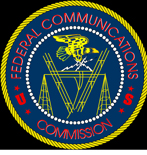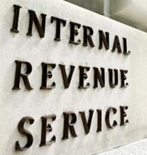Economists have long recognized that technological innovation and enhanced communication increase productivity and reduce friction in economic activity. And never before has technology’s impact on economic growth been as evident as it is today.
At IPI, we focus on technology and communications policy not only because it’s critical to economic growth, but also because government’s inherent tendency to regulate prospectively poses an active threat to the economic gains and lifestyle enhancements made possible by technological innovation.
The communications and technology industries are among the country’s most competitive and the biggest capital investors in the U.S. economy, and are thus prime engines of economic growth and job creation. It is critical that public policy encourages continued innovation and investment in the tech sector, and that we don’t limit the innovation upside with counterproductive taxes and regulations.
Regulators Going Off the Chain on Cryptocurrency
Regulators and legislators seem increasingly eager to impose government involvement as soon as an innovation hits the headlines.
Coalition letter Opposing Gigi Sohn's Nomination to the FCC
If confirmed, Sohn would work to instill policies that would crush innovation, silence conservative speech, and eviscerate intellectual property protections.
Market Forces Launch a New Era of Space for All Mankind
Critics of privately funded “joyrides” to space fail to understand that for decades government has been lost in space, taking much too long and spending too much money to accomplish too little. Government driven space policy will always be subject to shifting political whims and budget priorities, while market based space exploration is driven by opportunity for real gain and disciplined by competition and market forces. Today’s wealthy “early adopters” of space ventures are the first step in a process that will lead to greater, faster and broader opportunities in space for many.
Coalition Letter Opposing IRS Financial Reporting Requirement
Caolition letter in opposition to the proposed new reporting regime to have the IRS collect the account inflows and outflows for bank, loan, and investment accounts as well as Venmo, CashApp, and PayPal accounts.
Washington's Antitrust Push Could Create 'Chilling Effect' on Startups, Observers Say
There is concern that an FTC focused on ‘big is bad’ will stunt economic growth in the future.
On Technology, Congress Should Stop the Nonsense and Lead by Example
We are long past time when it is humorous for elected officials to admit they do not understand technology but then quickly move to regulate and tax it. For the sake of continued innovation, it is time for this nonsense to stop.
Testimony Regarding Online Freedom of Speech Legislation in Texas
Testimony by IPI President Tom Giovanetti before the Select Committee on Constitutional Rights & Remedies, Texas House of Representatives.
Coalition Letter Regarding Broadband Infrastructure Spending
Coalition letter flagging concerning developments in the infrastructure bill negotiations. Price controls and rate regulation; dramatic expansion of executive brand and agency authority; and government-controlled internet should never be on the table.
What Should Be Government's Role in Broadband Expansion?
Bridging the digital divide has become an even higher policy priority. But what’s the most efficient use of taxpayer dollars to reach this relatively narrow slice of the American public?
Expanding Broadband in Texas the Right Way
The low-hanging fruit for expanding broadband access is clearing away barriers to deployment. With HB 1505, Texas has taken some significant steps to extend broadband access to the approximately 4 percent of Texans who lack it. Other states should follow the example.












